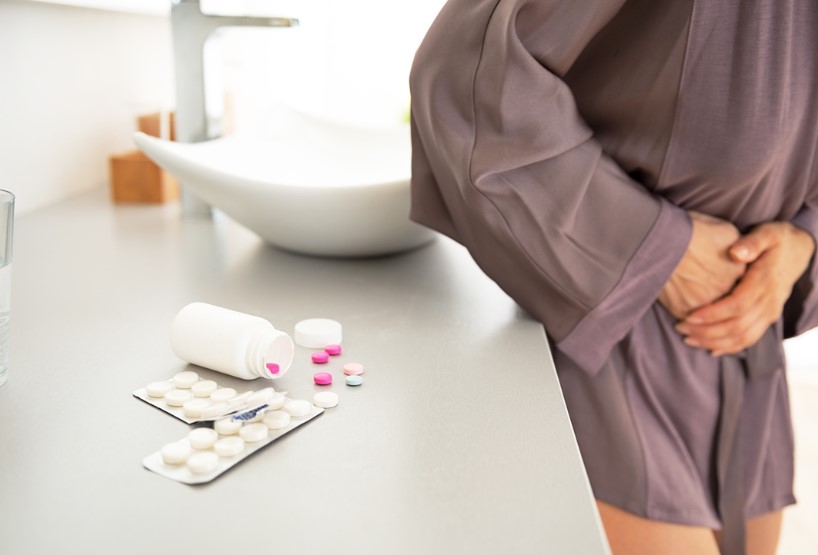Antibiotics are sometimes called antibacterials, and they can be used to treat or prevent bacterial infections. Sometimes, antibiotics can cause you to get constipated. Constipation occurs when you have a hard time emptying your bowels.
This can happen if you take antibiotics for a long time, if you take antibiotics too often, or if you take antibiotics that don’t belong to your proper treatment. Some over-the-counter laxatives, like Imodium and Dulcolax, can help move your bowels and make constipation go away.
If you notice that you are getting constipated during antibiotic use, talk to your doctor. Your doctor may be able to give you medicine or suggest a different antibiotic that won’t cause constipation. Antibiotics won’t always cause constipation. Antibiotics can change the way your body works, and sometimes this can lead to constipation.
What are constipation and what are the causes of it?
Constipation is a problem with the way your body moves food through your digestive system. It can be caused by a variety of factors, but the most common are: overeating, drinking too much water, eating too many high-fiber foods, straining during bowel movements, and having a hard time getting regular exercise.
There are a few things you can do to try and relieve constipation:
First, try to eat a balanced diet that includes foods from all the major food groups. This will help you to get the nutrients your body needs to function properly.
Second, try to take a laxative once a week. Laxatives are often prescribed to help relieve constipation, but make sure to speak with your doctor before taking one to ensure that it is safe for you.
Third, try to strain during your bowel movements. This can be done by using constipation relief products like strained fruit or vegetable juices, activated charcoal, or herbal supplements.
Finally, remember that constipation is a symptom of another problem, and it is always best to consult with a doctor if the problem persists for more than two weeks.

How antibiotics can cause constipation?
Antibiotics can cause constipation in a number of ways. Some of the most common ways that antibiotics can cause constipation are by altering the normal balance of bacteria in the gut, increasing the amount of water in the gut, and altering the absorption of water and electrolytes.
If you’re experiencing constipation after taking antibiotics, there are a few things you can do to try and remedy the situation. First, drink plenty of fluids to help rehydrate the body. This might include water, juice, or even soup. Second, try to eat a high-fiber diet to help restore the natural balance of bacteria in the gut.
This might include foods like fruits, vegetables, and whole grains. Lastly, take a stool softener such as Miralax or Laxatives to help ease the passage of stool. If these measures don’t work, speak to your doctor about alternative treatments that might be more suitable for you.
How to prevent constipation with a healthy diet and regular exercise
Antibiotics can cause a number of side effects, one of which is constipation. Here are a few tips to help prevent constipation from happening in the first place and to improve your digestion overall.
First, make sure you’re taking in enough fiber. Fiber is essential for healthy digestion, and it can help to prevent constipation by increasing the amount of water that’s passing through your intestines. Fiber can also help to regulate the way the intestines absorb nutrients, which can help to prevent unwanted bloating and gas.
Second, make sure you’re eating enough protein. Not only does protein help to build and maintain muscle tissue, but it’s also a good source of nutrients that help to improve your digestion.
Third, be sure to drink plenty of water. Not only will drinking water help to flush out your intestines, but it can also help to improve your overall digestion by providing you with the fluid you need to transport food through your body.
Fourth, exercise regularly. Regular exercise can help to improve your digestion by helping to increase your muscle strength and stamina, which can help to push food through your digestive system more easily.
Fifth, avoid eating processed foods. Processed foods are often high in sugar and unhealthy additives, which can cause your intestines to work harder than they should and lead to constipation. Instead, eat whole, unprocessed foods that are high in fiber and protein.
Ways to treat constipation with antibiotics
If you’re experiencing constipation, there are a few ways to treat it with antibiotics. Some people find that antibiotics help to break down the food that’s causing the constipation, while others find that they need to take antibiotics for a longer period of time in order to have any real effect.
To treat constipation with antibiotics, start by taking a standard antibiotics dosage and see how your body responds. If you experience any side effects, like nausea or vomiting, stop taking the antibiotics and consult with your doctor. If you’re able to take the antibiotics without any problems, continue taking them for the prescribed amount of time and see how your constipation responds.

How to treat constipation if it has already developed?
If you’re experiencing constipation, antibiotics may be a good option for you. However, be aware that antibiotics can sometimes cause constipation to worsen in those who are already constipated.
Before taking antibiotics, be sure to discuss your symptoms with your healthcare provider. He or she will be able to prescribe the right antibiotic for your individual situation and will be able to guide you through the treatment process.
During the treatment process, you will likely experience some side effects. Be sure to keep track of how you are feeling both before and after taking the antibiotic, and contact your healthcare provider if you experience any unusual symptoms.
Remember to drink plenty of water and avoid caffeine, alcohol, and large meals while taking antibiotics, as these all can increase the effects of the antibiotic. Keep in mind that most antibiotics will work within a few days, but it may take a few weeks for the full effect to be seen.
If you are considering taking antibiotics for constipation, be sure to talk to your healthcare provider about the risks and benefits before doing so.
When to call a doctor about constipation?
If you’re taking antibiotics and you start to experience constipation, don’t hesitate to call your doctor. Constipation can be a sign that the antibiotics are working and should be continued. However, if you experience severe constipation or if it lasts more than a few days, please call your doctor. Constipation can be a sign that there is something more wrong and you should see a doctor to check it out.
Conclusion – Do Antibiotics make you Constipated
In conclusion, while antibiotics can have many side effects, constipation is not generally listed as one of them. Even though antibiotics can affect the balance of good and bad bacteria in the gut, it is not likely to cause constipation. If a person experiences constipation while taking antibiotics, they should consult a doctor and consider other potential causes of the constipation.
FAQ – Do Antibiotics make you Constipated
Can antibiotics cause constipation?
Yes, certain antibiotics can cause constipation as a side effect.
What are the symptoms associated with constipation caused by antibiotics?
Symptoms of constipation caused by antibiotics may include hard, dry stools, infrequent bowel movements, abdominal pain, bloating, and feelings of incomplete evacuation.
How long does constipation caused by antibiotics last?
The length of time constipation caused by antibiotics may last can vary depending on the type of antibiotic being taken, the dosage, and the individual. Generally, constipation should resolve within a few days after completing the antibiotic course.
Are there any treatments for constipation caused by antibiotics?
Yes, there are treatments for constipation caused by antibiotics. These treatments may include increasing fluid and fiber intake, taking laxatives or stool softeners, and exercising regularly.
Is it safe to take over-the-counter medications for constipation caused by antibiotics?
Over-the-counter medications for constipation can be safe for some people, however, it is important to speak with a healthcare provider before taking any medication.

Comments